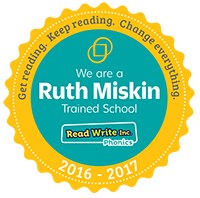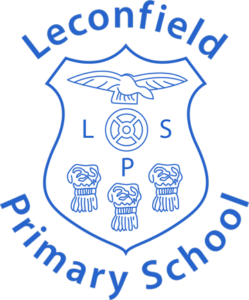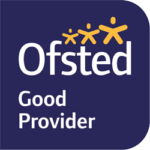Reading & Phonics
Early reading is supported through the Ruth Miskin Read Write Inc. phonics scheme. Read, Write, Inc. phonics is an inclusive literacy programme for all children learning to read.
Children learn the 44 common sounds in the English language and how to blend them to read and spell. It is powerful because it is based on the principles of how individuals learn.
It is a fully inclusive method of teaching reading with the movement from imitation to investigation to independent application, which can be adapted to suit the needs of learners of any stage.
The teaching of phonics begins as soon as children enter school. Our Little Acorns (FS1) work within Phase 1. We begin to teach letter sounds in FS2. Phonics teaching continues throughout KS1 and KS2 where appropriate.
Regular training and development days ensure that staff are equipped to teach with the expertise and skills required to promote excellent progress, as well as a love of reading.
Further Phonics information:
Ruth Miskin Learning to Read at Home
When children have completed the phonics programme, they develop deeper reading skills through quality texts in a range of genres. At Leconfield, we want our children to be enthusiastic and motivated readers with the confidence and skills needed to decode words, read with fluency and understanding to understand what they have read and to develop a love and enjoyment of reading for pleasure.
Each class accesses our library which has an up to date selection of books to provide quality reading materials for all children to promote reading for enjoyment. The children also take part in organising and developing their classroom reading area and an annual competition ensures that efforts are recognised.

‘The safeguarding of pupils is a priority in school. Staff know pupils and families well.’
‘There are respectful relationships between adults and pupils.’
‘Staff have given careful thought to what
children will learning each term.’
‘Leaders ensure that staff have the training and support to meet the needs of pupils with SEND’
‘Pupils listen carefully to other people’s opinions.’
‘One group of pupils is supporting the community to develop a sensory garden in
the local area.’
‘ Pupils, including those with special educational needs and/or disabilities (SEND), are given extra support if
they fall behind.’
‘Pupils feel safe in school. Bullying is rare.’
‘Leaders encourage pupils to take on responsibilities in school.’
‘Leaders and teachers promote a respect of different cultures and ideas.’
‘ Children learn to read as soon as they start at school. Welltrained staff skilfully help children to read with increasing confidence.’
‘Pupils move around the school sensibly.’
‘Pupils learn how to stay safe, including when using the internet.’
‘Leaders know how important it is for pupils to enjoy reading.’
‘One pupil, typical of many, said, ‘We should treat others as we expect to be treated ourselves.’
‘Pupils enjoy their role as ambassadors for the school, welcoming visitors and organising fundraising events.’
‘Pupils are respectful of people with different backgrounds or beliefs.’
‘Pupils are supportive of one another’
‘In
mathematics, the ‘small steps’ of knowledge that pupils must learn are clearly identified.’
‘Teachers encourage pupils
to read in a variety of ways.’
‘Leaders are working to further improve their curriculum.’
‘Learning builds on what pupils already know. Teachers have strong subject knowledge and support pupils to develop their reasoning skills.’
‘ The early years staff know their children well.’
‘Pupils learn to develop their independence from an early age.’
‘There are consistent routines and high expectations.’
‘Pupils enjoy attending this school.’
‘Pupils enjoy taking part in a wide range of extra-curricular experiences, such as rugby club and choir.’
‘Children enjoy exploring the purposeful learning environment that staff have created for them.’
‘Pupils are confident that staff will help them if they have any concerns.’
‘Across
the school, pupils behave well both in lessons and during social times.’



